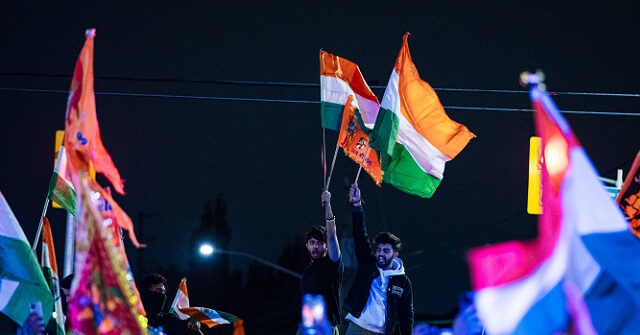A recent incident involving a violent clash at a Hindu temple in Brampton, Canada, highlighted the ongoing tensions surrounding the Khalistan Sikh separatist movement. On Sunday, members of this movement attacked the Hindu Sabha Mandir Temple, resulting in a confrontation between pro-Khalistani individuals and other attendees, many of whom were Indian nationals. Videos circulating on social media depict chaotic scenes where individuals armed with pro-Khalistani banners engaged in physical altercations, wielding fists, poles, and other makeshift weapons. The clash underscores the deepening divisions that stem from the Khalistan movement, which seeks to establish an independent Sikh state in northern India—a cause viewed by the Indian government as a significant threat to both national unity and territorial integrity.
Political leaders from Canada promptly condemned the violence at the Hindu temple, emphasizing the fundamental right of all Canadians to practice their faith peacefully. Prime Minister Justin Trudeau and Conservative Party leader Pierre Poilievre were vocal about the need for tolerance and respect among all communities. In the aftermath of the clash, the Peel Regional Police announced the arrest of three individuals involved, although they did not provide further details regarding the charges or the individuals’ identities. This incident serves as a reminder of the broader societal implications of religious and ethnic affiliation, amidst Canada’s diverse cultural landscape.
The violent altercation at the temple is set against the backdrop of a fraught diplomatic rift between India and Canada, particularly following the controversial assassination of Khalistani leader Hardeep Singh Nijjar in June 2023. Nijjar, who had been a prominent advocate for the Khalistan cause in Canada, was killed by masked assailants in Vancouver, prompting Prime Minister Trudeau to accuse the Indian government of orchestrating the murder. This accusation ignited outrage from India, which vehemently denied involvement and accused Canada of permitting anti-Indian sentiments to flourish on its soil. The diplomatic strife has escalated, leading to rounds of mutual expulsions of diplomats and heightened tensions between the two nations.
As this international conflict unfolded, Trudeau’s government faced scrutiny over its handling of the situation. Despite initially indicating India’s possible involvement in Nijjar’s murder, Trudeau later acknowledged a lack of “hard evidence” to substantiate these claims. This admission added complexity to Canada’s foreign relations and raised questions regarding the efficacy of its stance on the Khalistani movement within its borders. In a recent statement, Canadian Deputy Foreign Affairs Minister David Morrison accused Indian Home Minister Amit Shah of orchestrating plots against Sikh separatists in Canada, further inflaming diplomatic tensions.
In response to such accusations, the Indian government has maintained a firm stance, formally protesting Canada’s allegations and asserting that they are baseless. Indian Foreign Ministry spokesperson Randhir Jaiswal articulated the severity of these insinuations, warning of potential repercussions on bilateral relations. The ongoing verbal exchanges between the two nations reflect a deep unrest, illustrating the strategic geopolitical complexities that arise when domestic issues intersect with international diplomacy.
In light of these events, Indian Prime Minister Narendra Modi condemned the attack on the Brampton temple and reiterated his government’s commitment to ensuring the safety of Indian nationals abroad. Modi’s remarks emphasized the need for justice and the upholding of the rule of law by the Canadian government. The incident encapsulates considerable cultural and political tensions, not just within Canada but also extending into the broader implications for Indian diaspora communities worldwide. The clashes at the temple, coupled with escalating diplomatic disputes, point to the potential volatility of relationships shaped by ethnic and religious identity in a global context.

